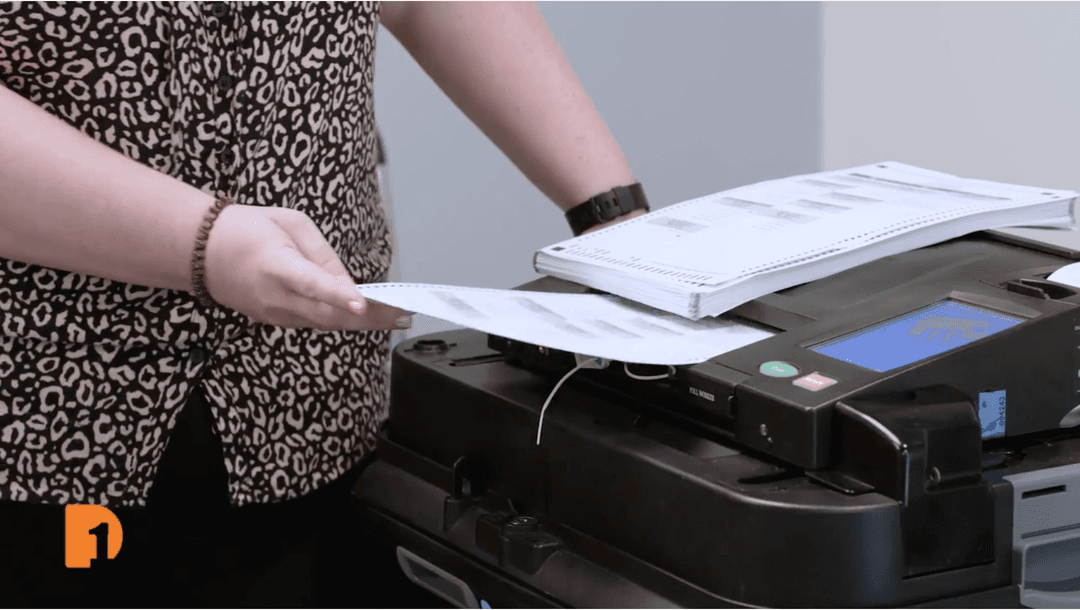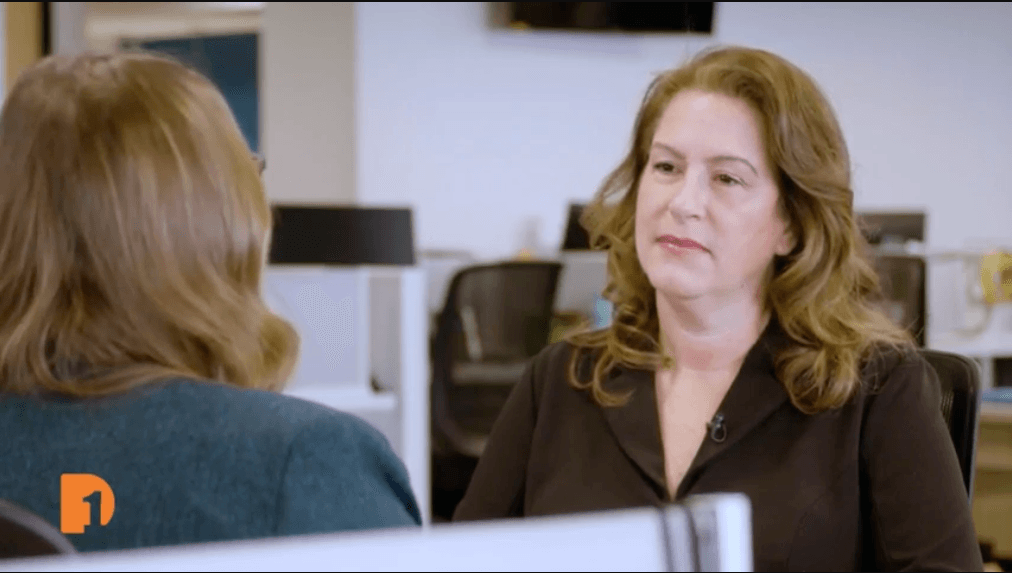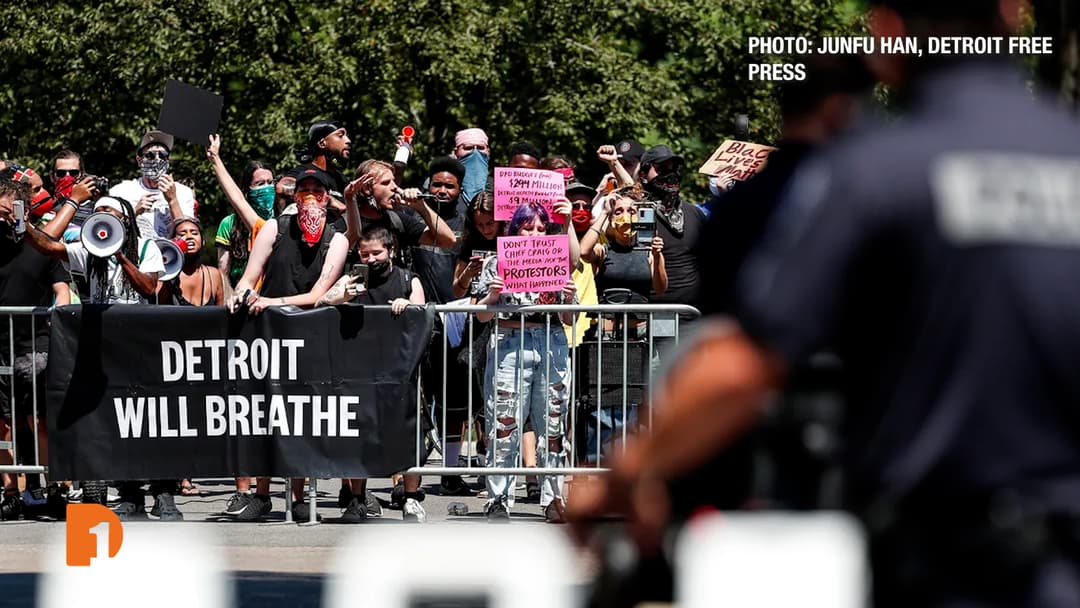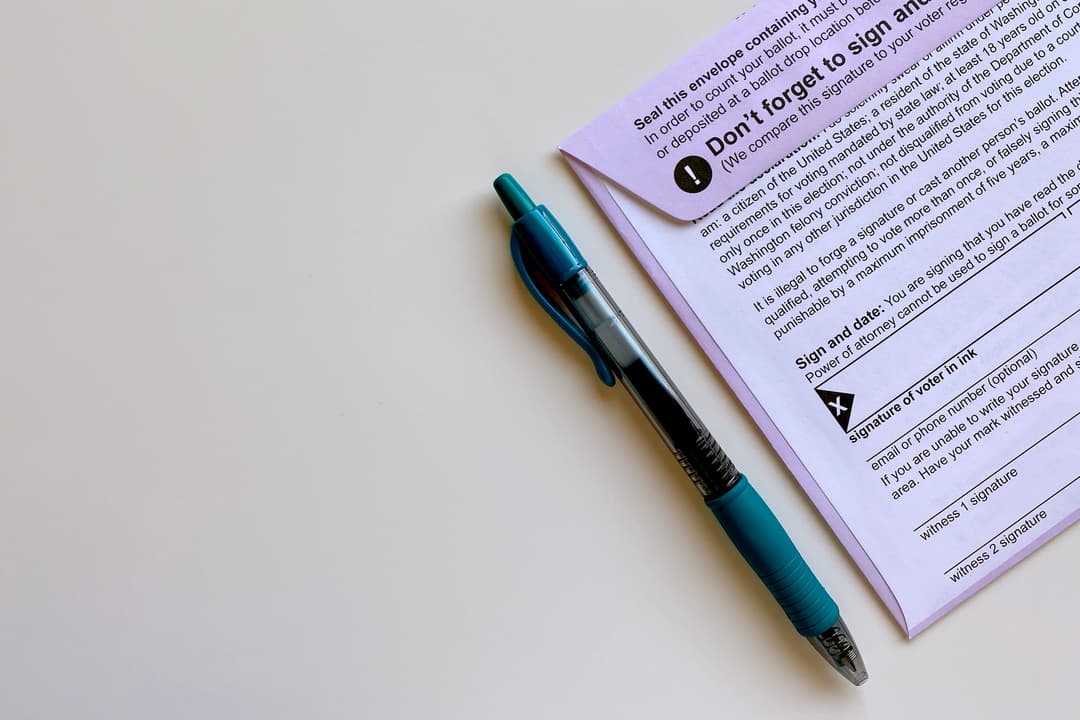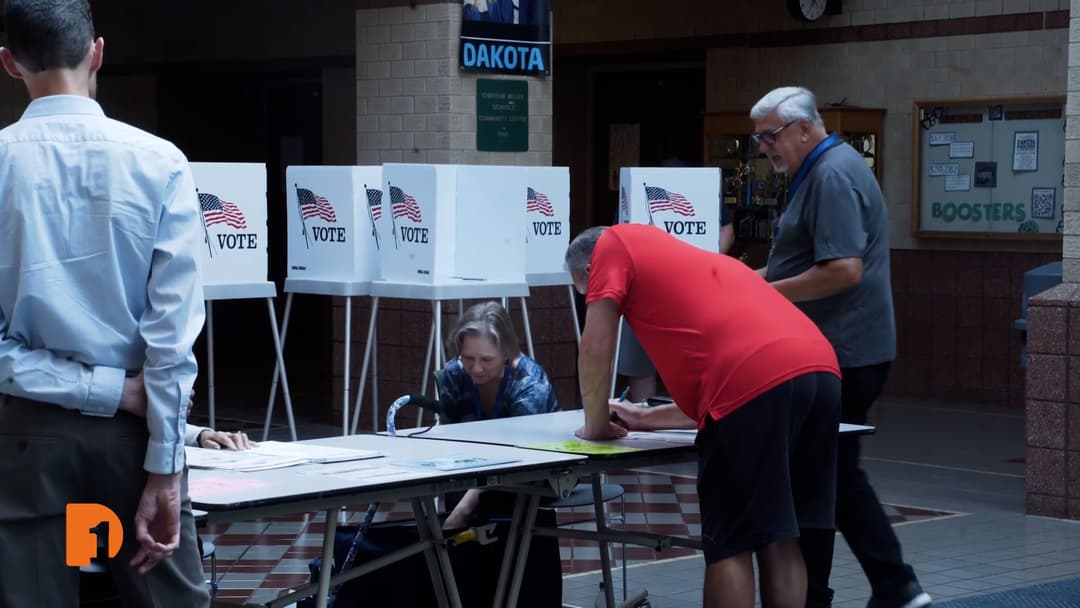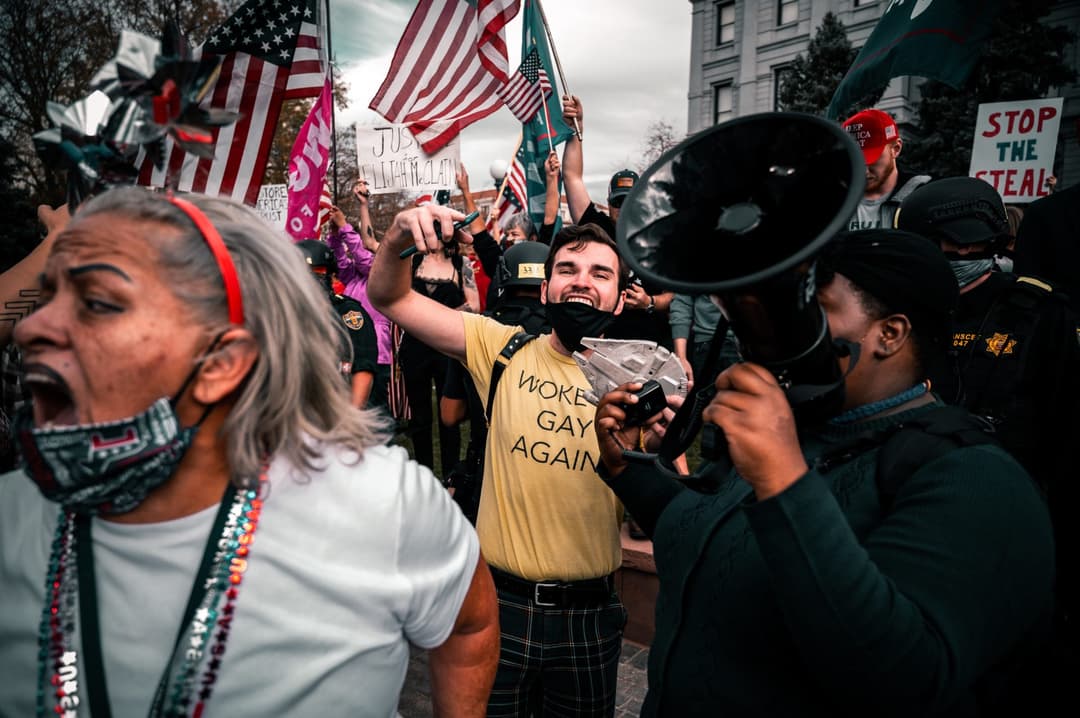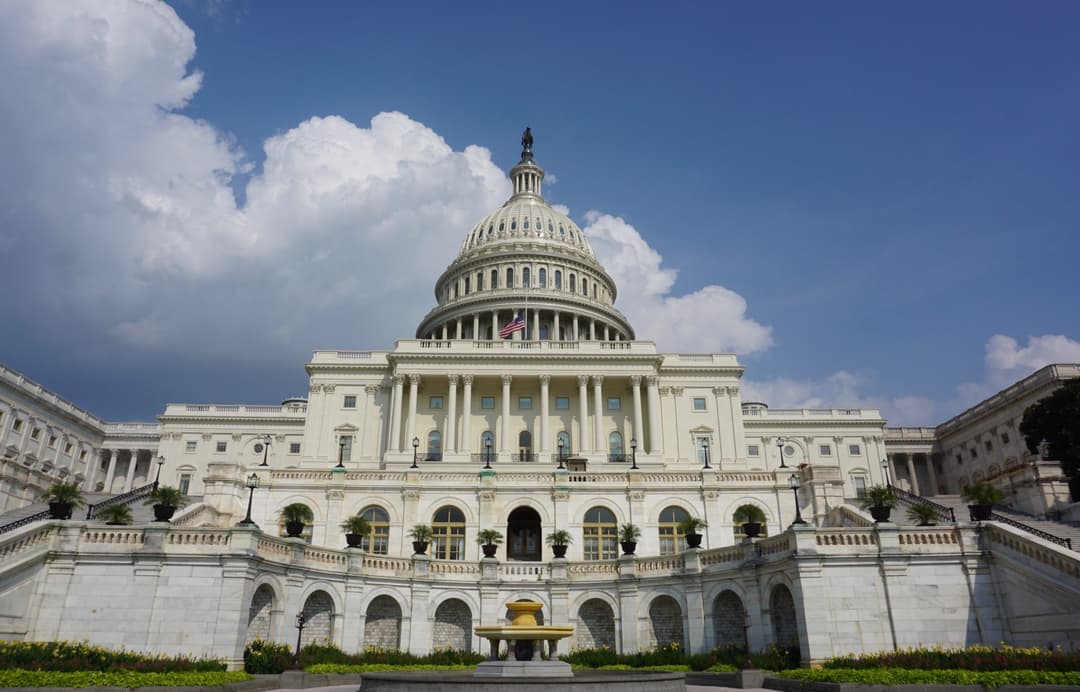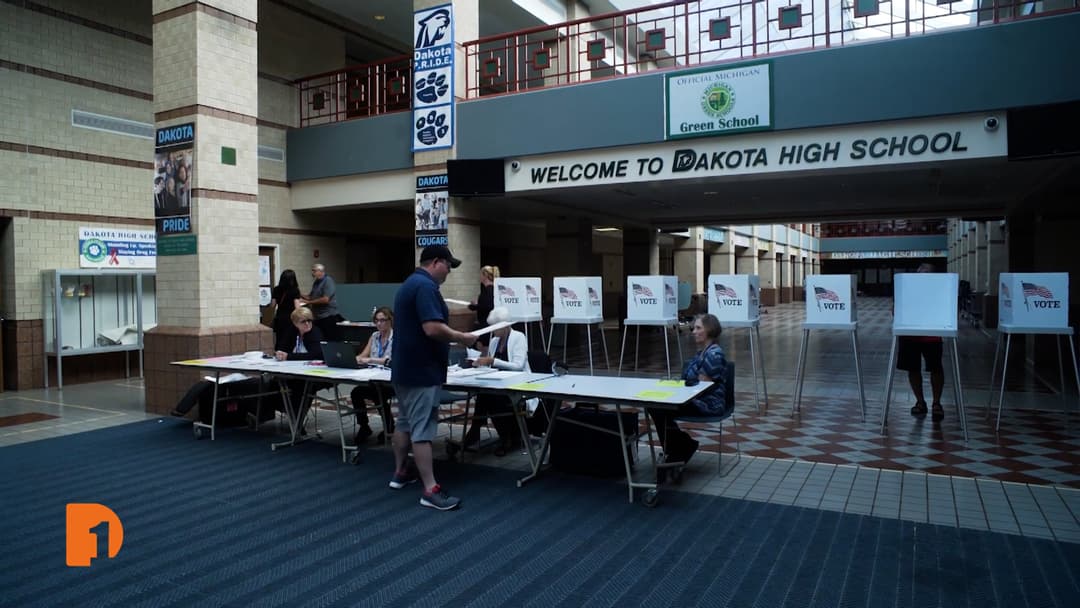Behind the ballot box: Detroit election inspectors receive training ahead of 2022 midterms
Aug 1, 2022
New plans for how Detroit will verify votes during the August 2 primary election will include more stringent protocols that tighten the leash on the number of challengers present on the Central Counting Board floor as election inspectors count and verify ballots. The move comes nearly two years after election workers at the formerly-named TCF Center saw angry protesters line up along the center’s glass windows, chanting, “Stop the count!” and causing other obstructions, Daniel Baxter, an election inspector for Detroit since 1985 told One Detroit.
RELATED: Recounting Election Night 2020: Trouble at TCF Center
RELATED: Election Aftermath: An Analysis of Misinformation, Media Trust and our Democracy
One Detroit’s Bill Kubota visits an election inspector training hosted by Baxter and David Nathan, an election trainer for Detroit, for a look at what goes on behind the scenes of elections and what election workers are required to know to preserve the democratic process.
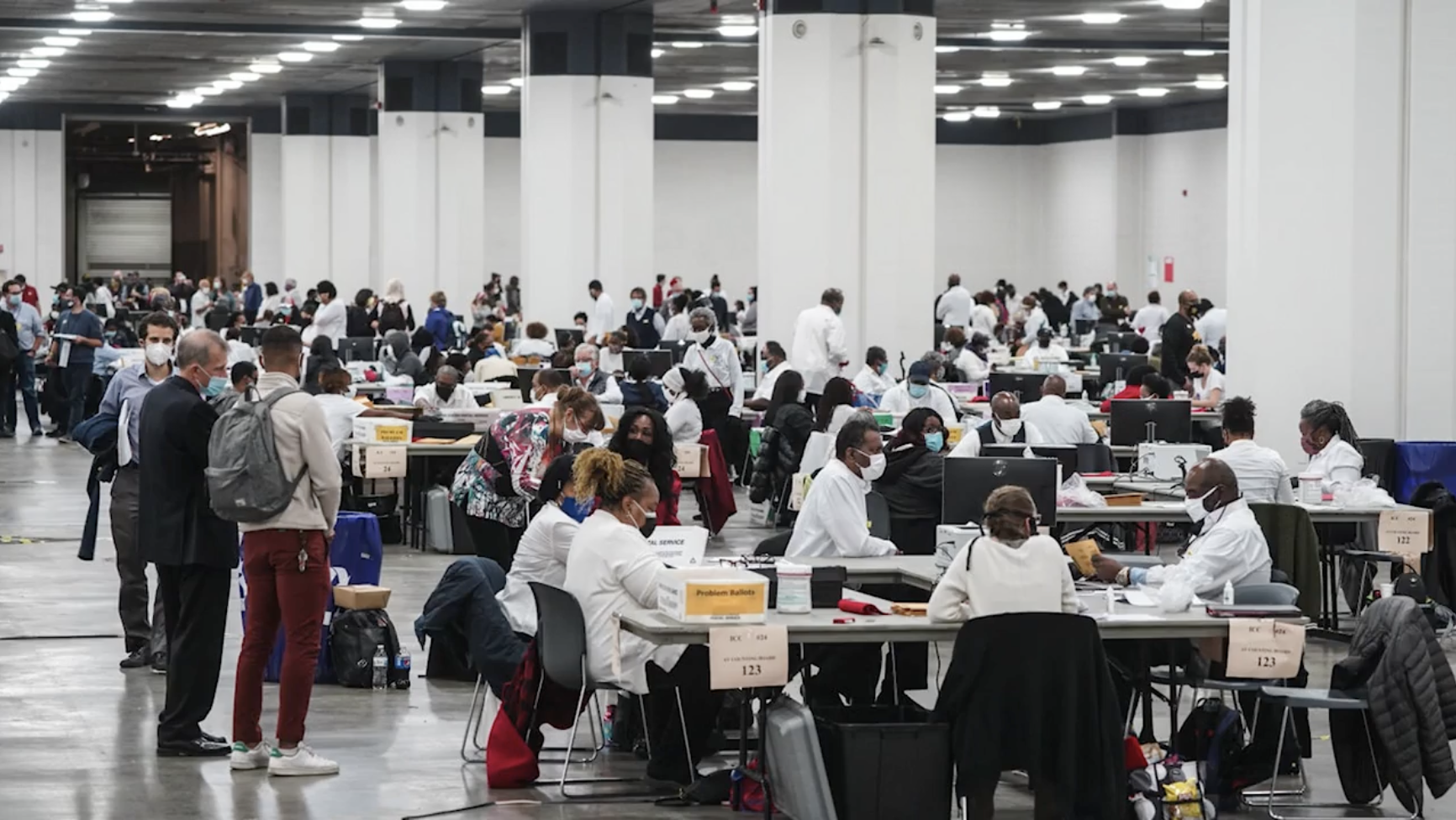
Baxter talks about the critical role election inspectors play in the process of election day, the roughly 50,000 absentee ballots expected to come in by the August 2 primary election, the importance of taking a nonpartisan approach to election inspecting, what election workers need to know heading into the primary, and the rise in Republicans who’ve reached out to help with the inspection process in 2022.
Plus, Nathan shares his belief that the decisions made during the 2022 and 2024 elections will likely define the outcome and foundational strength of America’s democracy. And, Baxter talks about the overall perseverance of the Detroit Department of Elections through the 2020 election and beyond.
This story coincides with One Detroit’s 1-hour election special episode with the Detroit Free Press. Watch “Beyond the Ballot Box: A One Detroit Election Special with the Detroit Free Press” on-demand now.
Full Transcript:
Daniel Baxter, Election Administrator, City of Detroit: I’d just like to start off by saying greetings to each and every one of you on behalf of the Detroit Department of Elections and our Detroit city clerk. Like I said, I’ve been doing this since 1985. I love this stuff. Elections is in my blood.
I’d like to welcome each and every one of you to the Central Counting Board Training Class. My name is Daniel Baxter. I just want to share a couple of things with you as we engage in this particular training. Our election inspectors are basically the lifeblood of the operation. They’re the folks who come in at 5:00 in the morning, and every Detroit resident who votes by absentee ballot is depending on them to guarantee that their ballots are processed accurately as well as timely.
David Nathan, Election Trainer, City of Detroit: And then there is a secrecy sleeve.
Bill Kubota, Senior Producer, One Detroit: Detroit’s Elections operation has been under scrutiny for years. At times, vote counts out of balance. That is numbers not adding up. Then came the Trump-Biden election. Detroit’s absentee vote count at what they used to call the TCF Center hit by the national spotlight.
Daniel Baxter: 2020, when all of that happened, it was perhaps the most exciting election that I had ever engaged in, and I thought 2008 was it.
Bill Kubota: 2008, the year Barack Obama was first elected. Lots of Detroit votes to be counted then.
Tresa Baldas, Reporter, Detroit Free Press: Where are you from?
Speaker 1: I’m from downriver. I’m here because of the 38,000 ballots that arrived here at 3:45 a.m. that are just now sitting over there and getting counted.
Bill Kubota: But 2020 Republicans and President Trump questioned how Detroit handled the vote.
President Trump: Detroit is another place and I wouldn’t say has the best reputation for election integrity.
Tresa Baldas: The craziest it got was in the middle of folks counting the ballots, you’d get a big group of Republican challengers that would form a circle around one table. And they’d start chanting, stop the count, stop the count, and clapping as they did it. And as you can see right now, we’ve got several police officers heading out there on the floor. And the police would come in. They’d escort them out.
Mandi Wright, Staff Photographer, Detroit Free Press: The number of Republican vote watchers were removed from the hall. So a group of angry protesters came down and started banging on the windows of the basement of where we were at.
Tresa Baldas: And then you’d have people complaining, “we got kicked out of the process.” Well, you were chanting in the middle of the floor and causing a scene.
Speaker 2: All the Republican challengers out of this room.
Tresa Baldas: A lot of conspiracy theories that were being thrown at us. And there was also a directive from folks. It said, to challenge everything. Challenge every ballot. And they were doing it. They were like, this doesn’t look good because of this or because of that. And at some point, someone had to step in and say enough.
Edith Lee-Payne, Democrat, Detroit Election Inspector Supervisor: Those people, the way they were behaving to demand that we stop counting. I mean, literally demand. And I can’t imagine what would have happened if they had broken down that door and gotten inside.
Tresa Baldas: People were not only banging on the windows, but they were taking their phones and they were videotaping the counters as they were counting the ballots. Well, A, that’s not allowed. And, B, it was intrusive and bothersome. So the ballot counters said, listen, these folks outside the windows are videotaping me. So they taped up the windows.
President Trump: One major hub for counting ballots in Detroit covered up the windows with large pieces of cardboard.
Tresa Baldas: In the mind of somebody who thinks that they’re already being shut out of a process, you put up a piece of paper so they can’t see it, they’re going to be like ah-ha they’re hiding something.
President Trump: They wanted to protect and block the counting area. They didn’t want anybody seeing the counting, even though these were observers who were legal observers that were supposed to be there.
Bill Kubota: There were plenty of Republican challengers inside, too many, working, some perhaps not so civilly, with trained Election Inspectors.
Edith Lee-Payne: We had a lot of training. We had three days over a period of maybe three weeks.
Bill Kubota: Election Supervisor Edith Lee Payne, a Democrat. She was in there.
Edith Lee-Payne: Even I was a supervisor, I had to know what was expected of me as a supervisor. I also needed to know what challengers… The rights that they had because they were there.
Bill Kubota: Can you understand some of those folks that showed up that didn’t trust the system?
Edith Lee-Payne: I can understand why some of the people that showed up not trusting the system because they themselves wanted to… Some people can’t handle the truth, has been said in a movie.
David Nathan: You all excited about this election? I am, too.
Bill Kubota: Despite that turmoil two years ago, these election inspectors have returned to count another day.
David Nathan: I think that this is probably… These next couple of elections are probably going to be the most important elections of our country.
Daniel Baxter: We have two shifts and it’s roughly anywhere from 1100 to 1300 people who work to ensure that all those ballots are processed.
David Nathan: We are going to go through this training. This training is probably going to be about 3 hours or so. It’s for CCB, as Mr. Baxter said. CCB, Central Counting Board. We count all the absentee ballots for the city of Detroit.
Daniel Baxter: We stand on the fence, if you will, in terms of engaging in this process. We’re not Democrats. We’re not Republicans. We’re a nonpartisan entity who is responsible to ensure that all ballots are counted.
David Nathan: The attire for inspectors is white, top black, bottom, close-toed shoes, no jeans, and no Greek or partisan paraphernalia are allowed.
Daniel Baxter: When you go to the polls on Election Day, when you cast your vote, you have to fill out an application, and you have to sign it. And that application has to be verified and bumped against your record and the electronic poll book. The same thing is true for an absentee ballot.
Bill Kubota: That’s part of the process that would be suspect to some who questioned the absentee count in 2020. They didn’t understand or maybe they didn’t want to.
Daniel Baxter: When those ballots come back, we have to verify that signature to make sure it’s the exact same signature that was on file when the individual requested it. It takes time. So once we processed all of those ballots, then they were delivered to the central counting board, and it was late.
Bill Kubota: The mysterious late-night arrival seen in surveillance video circulated on the Internet, just ballots that had to be verified ahead of the count.
David Nathan: They’re going to take their first 50 out of whatever precinct that they’re working in. They’re going to go through every single one of those ballots or envelopes to ensure that there is a signature on each one of those, that there is an election date that is correct, and that the precinct number, which is on the label, is the precinct that we’re working in.
Bill Kubota: In 2020, poll challengers roamed freely on the counting floor. With too many challengers, when some left, they weren’t let back in. Now, A new plan.
Daniel Baxter: So for this year, what we did was we revamped the entire operation. For instance, in 2020, they had to sign in on a regular sheet of paper. But for this election, they’ll be responsible for swiping in with their driver’s license so that they might be able to enter. That information will be uploaded in our system where we might be able to keep a count of who’s actually in the Central Counting Board as we process absentee ballots.
Each individual will be given a name tag with their party affiliation or their challenging affiliation on it, as well as they’ll be responsible for being stationed at one of the counting boards slash tables. So instead of roaming about throughout the entire building or throughout the entire counting board, they will be restricted to a certain table.
David Nathan: Cell phones are not permitted in Hall E. Not permitted to be used. If you are using a phone in Hall E, you will be asked to leave and potentially not paid for that day.
Daniel Baxter: Last year, during our municipal election cycle at the Central County Board, we probably had less than 100 Republicans to engage in the process. This year we received applications for upwards of 800 individuals to work with us on Election Day. However, at the Central Counting Board, we’ll probably have roughly 200, maybe 250 of them to serve as inspectors to help us with the tabulation of absentee ballots.
Bill Kubota: Republican election inspector Max Rohtbart worked in Detroit last year. This year too.
Max Rohtbart, Republican, Detroit Election Inspector: In 2021, the clerk’s office, they balanced every precinct at the absentee counting board, something they had done over 20 years. It really is a remarkable accomplishment.
Bill Kubota: Rohtbart’s done Oakland County elections for years but wanted to see Detroit’s process knowing past issues there.
Max Rohtbart: Usually if you have about over 30 precincts, there’s at least one that’s out of balance because you’re working a 13-to-17-hour shift. And if you make one mistake and you don’t catch it, you’re off.
David Nathan: Now, this supply box has everything that you need for the entire day. We have, below the supply box, a black bin.
Daniel Baxter: We’ve received kudos from both the Wayne County Board of Canvassers as well as the State Bureau of Elections for our efforts. So we’re excited about that as we began to engage in the off-year election here. For the gubernatorial, we expect the same. And after this election, we’re going to look at how we can enhance and improve it for the 2024 presidential election cycle.
David Nathan: So your section supervisor, your team lead, will fill this document out. But all inspectors must sign this document at the end of the night.
Max Rohtbart: The way the absentee board works, there is no position in the Absentee Counting Board that really involves discretion. The entire process of the absentee counting board now is a very singular assembly line task where it’s very tough to really impact or throw a wrench into the socket. And if there is a problem, it’s very easy to remove it and have an alternate replaced.
Daniel Baxter: I’d like to add something. I think that the reason why after the 2020 presidential election, nobody quit in Detroit at the Department of Elections is because over the years… We get beat up a lot and it’s a thankless job. And I think that what it did for us, it built thick skin. Around the country, they probably never experienced that before. We’ve had protests in front of the Department of Elections, the clerk. So it was almost like par for the course. But in Detroit, we have to deal with that a lot.
Stay Connected:
Subscribe to One Detroit’s YouTube Channel & Don’t miss One Detroit Mondays and Thursdays at 7:30 p.m. on Detroit PBS, WTVS-Channel 56.
Catch the daily conversations on our website, Facebook, Twitter @DPTVOneDetroit, and Instagram @One.Detroit
View Past Episodes >
Watch One Detroit every Monday and Thursday at 7:30 p.m. ET on Detroit Public TV on Detroit Public TV, WTVS-Channel 56.
Stay Connected
Subscribe to One Detroit’s YouTube Channel and don’t miss One Detroit on Thursdays at 7:30 p.m. and Sundays at 9 a.m. on Detroit PBS, WTVS-Channel 56.
Catch the daily conversations on our website, Facebook, Twitter @OneDetroit_PBS, and Instagram @One.Detroit
Related Posts
Leave a Reply
Your email address will not be published. Required fields are marked*






